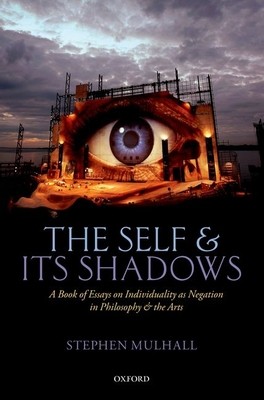
- We will send in 10–14 business days.
- Author: Stephen Mulhall
- Publisher: Oxford University Press, USA
- ISBN-10: 0199661782
- ISBN-13: 9780199661787
- Format: 15.5 x 23.4 x 2.5 cm, hardcover
- Language: English
- SAVE -10% with code: EXTRA
Reviews
Description
Stephen Mulhall presents a series of multiply interrelated essays which together make up an original study of selfhood (subjectivity or personal identity). He explores a variety of articulations (in philosophy, psychoanalysis, and the arts) of the idea that selfhood is best conceived as a matter of non-self-identity--for example, as becoming or self-overcoming, or as being what one is not and not being what one is, or as being doubled or divided. Philosophically, a sustained reading of the work of Nietzsche and Sartre is central to this project, although Wittgenstein is also fundamental to its concerns; Mulhall therefore draws extensively on texts usually associated with 'Continental' philosophical traditions, primarily in order to test the feasibility of a non-elitist form of moral perfectionism. Within the arts, several essays examine various films whose themes intersect with those of the philosophers under study (including Hollywood melodramas, recent spy movies such as the
Bourne trilogy and the latest incarnation of James Bond, and David Fincher's 'Benjamin Button'); Wagner's Ring cycle is a recurrent concern; and the novels of Kingsley Amis, J. M. Coetzee and David Foster Wallace are also prominent.
EXTRA 10 % discount with code: EXTRA
The promotion ends in 17d.19:46:02
The discount code is valid when purchasing from 10 €. Discounts do not stack.
- Author: Stephen Mulhall
- Publisher: Oxford University Press, USA
- ISBN-10: 0199661782
- ISBN-13: 9780199661787
- Format: 15.5 x 23.4 x 2.5 cm, hardcover
- Language: English English
Stephen Mulhall presents a series of multiply interrelated essays which together make up an original study of selfhood (subjectivity or personal identity). He explores a variety of articulations (in philosophy, psychoanalysis, and the arts) of the idea that selfhood is best conceived as a matter of non-self-identity--for example, as becoming or self-overcoming, or as being what one is not and not being what one is, or as being doubled or divided. Philosophically, a sustained reading of the work of Nietzsche and Sartre is central to this project, although Wittgenstein is also fundamental to its concerns; Mulhall therefore draws extensively on texts usually associated with 'Continental' philosophical traditions, primarily in order to test the feasibility of a non-elitist form of moral perfectionism. Within the arts, several essays examine various films whose themes intersect with those of the philosophers under study (including Hollywood melodramas, recent spy movies such as the
Bourne trilogy and the latest incarnation of James Bond, and David Fincher's 'Benjamin Button'); Wagner's Ring cycle is a recurrent concern; and the novels of Kingsley Amis, J. M. Coetzee and David Foster Wallace are also prominent.


Reviews